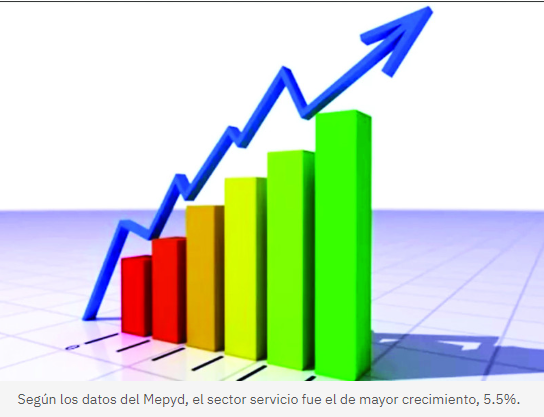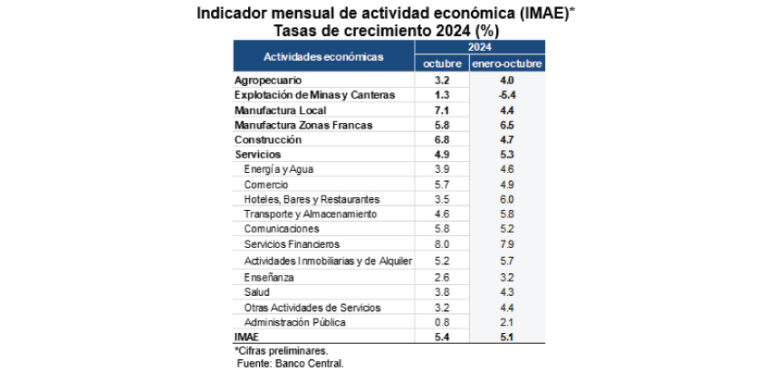
During his statements, IMF mission chief Emilio Fernández-Corugedo highlighted the perception among productive sectors of macroeconomic stability and social peace that the Dominican Republic exhibits.
The International Monetary Fund (IMF) mission estimates that the Dominican Republic will achieve a 5.1% GDP growth for the year 2024, with inflation within the Central Bank’s target range.
Chief mission officer Emilio Fernández-Corugedo also emphasized “the stimulus represented for the country by the increasing figures of foreign direct investment, a symbol of the strength of the external sector in the Dominican Republic.”
He underscored the positive perception in productive sectors regarding macroeconomic stability and social peace in the Dominican Republic.
In this regard, he highlighted the positive evaluation from the private sector regarding the Central Bank’s achievement of reaching the inflation target within the 4% +/-1% range, while also maintaining financial system stability.
Regarding the financial sector, the IMF considers it to be maintaining adequate levels of capitalization and profitability, with “positive prospects for the future of the Dominican financial sector.”
Fernández-Corugedo is in the country leading the IMF’s Article IV mission under the IMF’s Articles of Agreement, and provided these details after a meeting with the Governor of the Central Bank of the Dominican Republic (BCRD), Héctor Valdez Albizu.
The meeting presented initial conclusions from discussions held over the past two weeks with public sector entities, private sector institutions, the financial system, and civil society.
Fernández-Corugedo expressed gratitude for the collaboration provided by the Central Bank to conduct their assessments, highlighting their professionalism, transparency, and adherence to international standards. He added, “we are fully committed to providing technical assistance for any future projects they may need.”
Meanwhile, Valdez Albizu expressed satisfaction with the high level of cooperation between both organizations for the BCRD, whose macroeconomic assessment largely aligns with the Central Bank’s own projections and macroeconomic outlook.
Regarding the performance of the financial system, Valdez Albizu noted that “its solvency ratio was 17.60% as of March 2024, exceeding the 10% required by regulations. Likewise, the non-performing loan ratio of the financial system was only 1.3%, and for multiple banks it was 1.2% as of June 2024; while return on equity (ROE) was 24.9% and return on assets (ROA) reached 3.0%.”
The Governor indicated that activities generating foreign exchange continue to perform favorably, with tourism, export zones, remittances, and foreign direct investment being notable contributors.
He mentioned that “the Dominican peso has maintained relative stability, while international reserves are around US$ 15.6 billion as of July 22, equivalent to 12.6% of GDP and about 5.9 months of imports, exceeding IMF-recommended metrics.”
Finally, he stated that “the Dominican economy is well-positioned to achieve growth around its potential, facing a challenging outlook, considering the strength of its macroeconomic fundamentals, resilience of productive sectors, and improvements in country risk indicators in international markets.”
The IMF mission has been conducting meetings with the government’s economic team and representatives from the Dominican business sector for approximately two weeks, analyzing data to prepare a report on the country.
Source:




